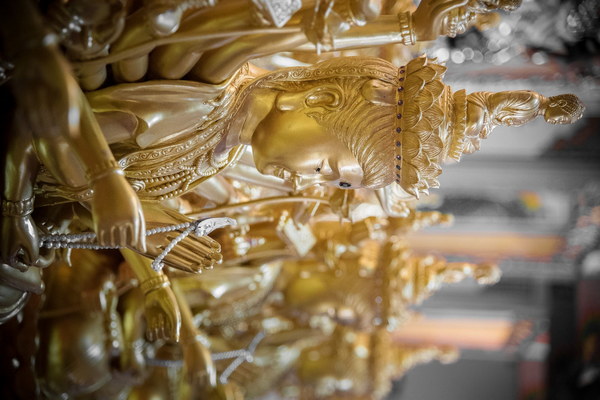Harmonizing Body and Mind A Journey into Traditional Chinese Medicine for Health and Wellbeing
In the quest for holistic health and well-being, many are turning to the ancient wisdom of Traditional Chinese Medicine (TCM). With its rich tapestry of practices and principles, TCM offers a unique approach to wellness that emphasizes balance and harmony within the body and mind. This article delves into the essence of TCM and explores how it can be integrated into our daily lives for a healthier, more balanced existence.
Understanding Traditional Chinese Medicine
Traditional Chinese Medicine is an ancient healing system that originated in China over 2,500 years ago. It is based on the belief that the human body is an intricate network of interconnected systems, all working together to maintain balance and health. TCM focuses on the concept of Qi (pronounced chee), which is often translated as vital energy. The flow of Qi is believed to be essential for health, and any blockage or imbalance can lead to disease.
Key Principles of TCM
1. Yin and Yang: The concept of Yin and Yang is central to TCM. It represents the complementary forces of nature and the body. In a healthy state, Yin and Yang are in balance, but when one is dominant over the other, it can lead to illness.
2. Five Elements: TCM divides the world and the body into five elements—wood, fire, earth, metal, and water. Each element corresponds to different organs and tissues, and imbalances in one element can affect the others.
3. Meridians: The body is said to be interconnected through a network of meridians, through which Qi flows. Each meridian corresponds to an organ system, and acupuncture, a common TCM practice, involves inserting fine needles into specific points along these meridians to unblock Qi and restore balance.

TCM Practices for Health and Well-being
1. Acupuncture: This therapeutic technique involves inserting fine needles into specific points along the meridians to stimulate Qi flow and relieve pain or treat various conditions.
2. Herbal Medicine: TCM utilizes an extensive range of herbs and natural substances to address health concerns. These herbs are often prescribed in combination to address the specific needs of the patient.
3. Tai Chi and Qigong: These practices involve gentle, flowing movements and controlled breathing exercises that help to improve balance, flexibility, and mental focus, while also enhancing the flow of Qi.
4. Diet and Nutrition: TCM emphasizes the importance of a balanced diet that includes foods according to the individual's specific constitution and seasonal changes.
5. Meditation and Mindfulness: Techniques such as meditation and mindfulness are encouraged to help manage stress and promote emotional well-being.
Integrating TCM into Daily Life
To incorporate TCM principles into your daily life, consider the following:
- Mindful Eating: Pay attention to your dietary habits and choose foods that align with your body's needs and the season.
- Regular Exercise: Engage in activities like Tai Chi or Qigong to improve balance and circulation.
- Stress Management: Practice mindfulness or meditation to reduce stress and maintain emotional balance.
- Herbal Supplements: Consult with a TCM practitioner to determine if herbal supplements can complement your wellness routine.
- Acupuncture Sessions: If you're dealing with chronic pain or other health issues, consider regular acupuncture sessions.
By embracing the principles of TCM, individuals can experience a holistic approach to health and well-being that addresses both physical and mental aspects of life. Whether through lifestyle changes or specific TCM practices, the goal is to achieve a state of harmony where the body and mind work together to maintain optimal health.









